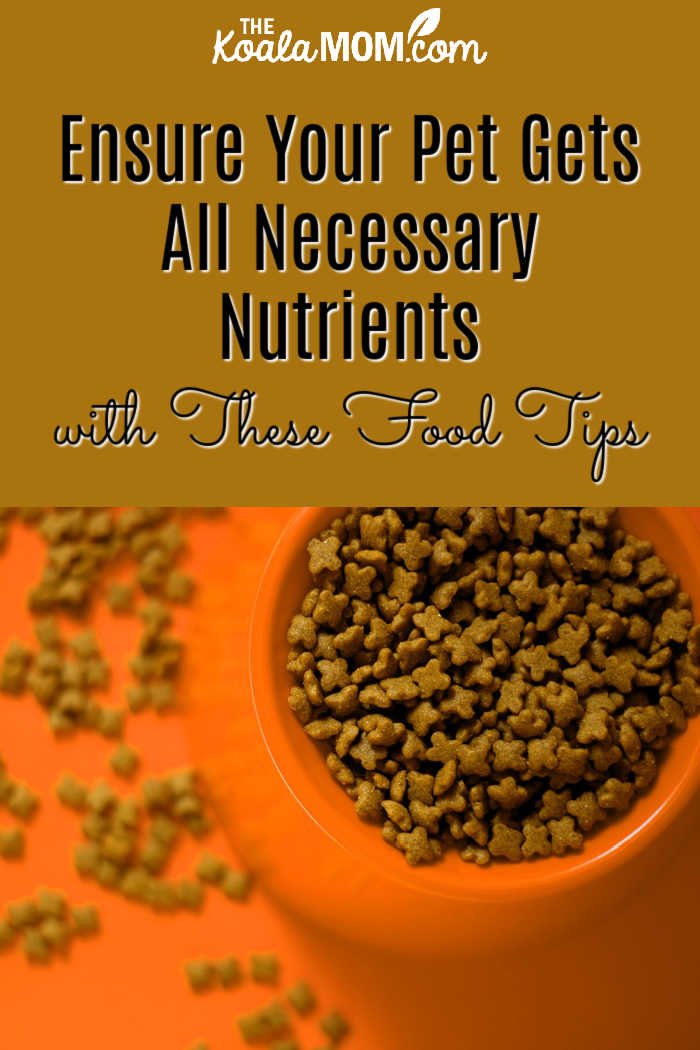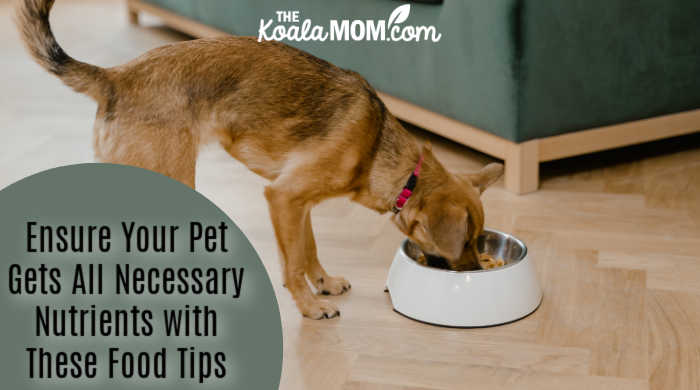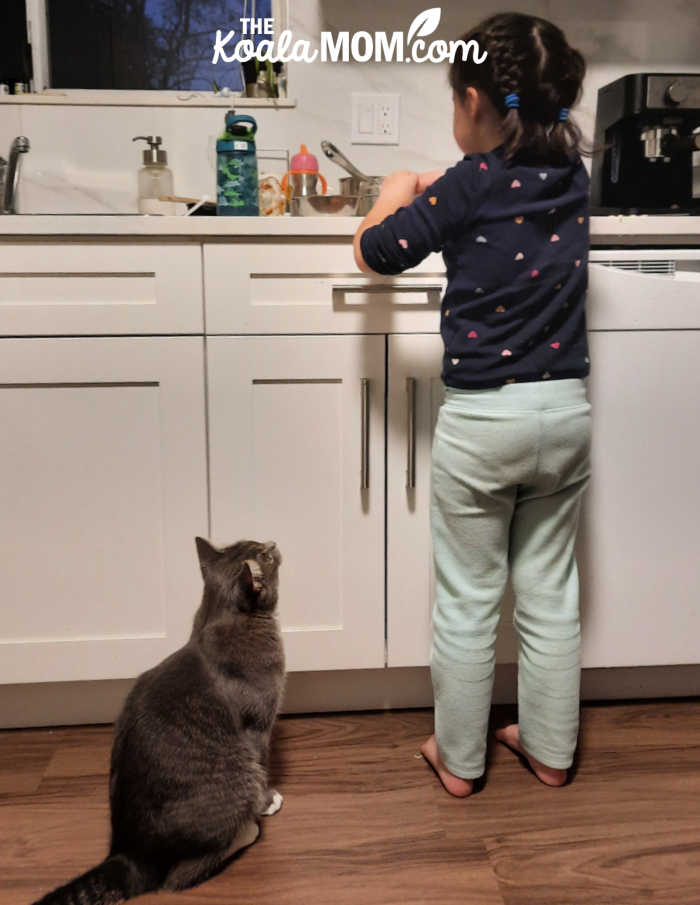Pets are an important part of our lives and it’s important to ensure they receive all the necessary nutrients for a healthy life. Unfortunately, with so many pet food options on the market, it can be difficult to know which one is best for your pet. Need some pet food tips? Read on!
There are several simple tips you can use to make sure your pet gets all the nutrition they need. From reading labels carefully to understanding what ingredients are beneficial for your pet’s health, these tips will help you choose the right food and ensure that your furry friend is getting everything their body needs.
So let’s take a look at what you should consider when selecting a diet plan for your beloved companion animal.

Read the Ingredients
A pet’s diet should contain healthy, nutrient-rich ingredients. When choosing a food for your pet, read the labels carefully and look for real, whole ingredients that are recognizable such as meat, fruits, and vegetables. Avoid foods with fillers, preservatives, or chemicals.
On the other hand, raw food diets are becoming more popular and can provide a good balance of nutrition. When you buy natural raw dog food, check the ingredients to make sure there is enough nutritional value and that it won’t upset your pet’s stomach. Once you find the right combination of healthy ingredients—protein, fat, fiber, essential fatty acids, vitamins, and minerals—you can ensure that your pet is getting all the nutrients they need this way.
You should also look for quality proteins like beef, chicken, fish, eggs, and cheese when selecting food for your beloved friend.
Understand Your Pet’s Specific Needs
Every pet is different, and that means their nutritional needs will vary. If your pet has existing health conditions, such as diabetes or allergies, you should talk to your veterinarian about what foods would be best for them. Some pets may require a special diet to help manage health issues or balance their nutrition.
On the other hand, depending on the age and breed of your pet, the amount of food you should feed them may also vary. For example, smaller breeds tend to need less food than larger breeds, and puppies generally require more calories than adult dogs.
Some dog breeds will eat whatever food is placed in front of them and run the risk of becoming obese. You’ll have to measure their food and ensure they don’t overeat. Other breeds, like my mom’s Wheaten terrier, will self-regulate and are less likely to become overweight. Again, talk to your vet about your dog’s breed and personality.
Research Different Pet Food Brands
Just like with human food, not all pet food is created equal. Research different brands to find out which ones are the most trustworthy and provide the best quality. You should also consider the cost of different brands, since some may be more expensive than others.
It can be helpful to buy organic or natural pet food, as this typically contains fewer additives and preservatives. It’s also important to check the reviews of different foods so you can get a better understanding of what other pet owners think about them.
Consult Your Veterinarian
Your veterinarian is an invaluable resource when it comes to determining which food would be best for your pet. They can give you advice on what type of food would be ideal for your pet’s health, as well as the quantity you should feed them. Usually, veterinarians can also guide any special nutritional requirements your pet may have due to age or existing conditions.
For instance, the vet can advise on the best supplements that can be added to your pet’s food, such as vitamins or minerals. Furthermore, they can guide any foods that may be harmful to your pet and should thus be avoided (like chocolate!).
Provide Pet Food Variety
Finally, just like humans, pets need variety in their diet. Try to offer a combination of wet and dry food, as well as healthy snacks and treats. If you’re feeding your pet kibble, make sure to switch up the flavors every once in a while. This will help ensure that they don’t get bored of eating the same thing all the time and that they are getting a balanced diet overall.
For example, our cat gets dry kibble in the morning and wet, canned food in the evening. He also regularly gets some treats in a wobbly pet toy that he has to knock over to dispense his treats. He loves his food and paws at the cupboard door multiple times per day to ask for treats or kibble.
You can also provide variety in the form of homemade meals. This is a great way to give your pet something special and make sure they’re getting all the necessary nutrients. Just make sure to get your vet’s approval for any recipes you plan to use before giving them to your pet.

To ensure that your furry friend gets all the necessary nutrients, you should understand their specific needs based on age and breed, research different pet food brands to find quality ingredients, consult your veterinarian for guidance on any special nutritional requirements or supplements they may need, and provide variety in their diet.
With these pet food tips in mind, you can rest assured knowing that your pet will have a healthy diet full of delicious food!


No Responses Yet